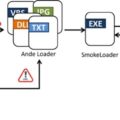| Category | Details |
|---|---|
| Threat Actors | Unidentified attackers exploiting the fake Proof-of-Concept (PoC) for CVE-2024-49113, referred to as “LDAPNightmare.” |
| Campaign Overview | Attackers disguise a malicious repository as a legitimate PoC exploit for a patched Windows LDAP vulnerability. The malware steals sensitive data from targeted security researchers. |
| Target Regions (or Victims) | Security researchers downloading PoC exploits from online repositories. |
| Methodology | • Fake repository mimicking legitimate sources. • Malicious executable disguised as a PoC. • Stealthy data exfiltration to external servers. • PowerShell scripts for persistence and additional payloads. |
| Products Targeted | Systems used by security researchers running the malicious PoC exploit. |
| Malware Reference | Information-stealing malware delivered via the “LDAPNightmare” fake PoC exploit. |
| Tools Used | • Malicious repository. • PowerShell scripts. • External FTP servers for exfiltration. • Pastebin for hosting additional malicious scripts. |
| Vulnerabilities Exploited | CVE-2024-49113 (Windows LDAP DoS vulnerability). |
| TTPs | • Fake repositories mimicking legitimate forks. • Replacing Python files with malicious executables. • Use of PowerShell scripts to establish persistence. • Exfiltration of sensitive data to remote servers. |
| Attribution | No specific attribution to known groups, though the sophistication indicates a well-resourced threat actor. |
| Recommendations | • Verify repository authenticity before downloading. • Use official sources for PoC exploits. • Monitor for suspicious activity in downloaded code. • Check for red flags in repositories. • Patch systems promptly. |
| Source | Hackread |
Read full article: https://hackread.com/fake-poc-exploit-hit-cybersecurity-researchers-malware/
The above summary has been generated by an AI language model




Comments (1)
Osint10X Newsletter #4 - Osint10xsays:
January 12, 2025 at 11:12 pm[…] A malicious Proof-of-Concept (PoC) exploit is circulating among cybersecurity researchers. Instead of demonstrating a vulnerability, it installs malware on the researcher’s system. The malware allows attackers to exfiltrate sensitive data and gain persistent access, posing a significant risk to the research community. Read more […]